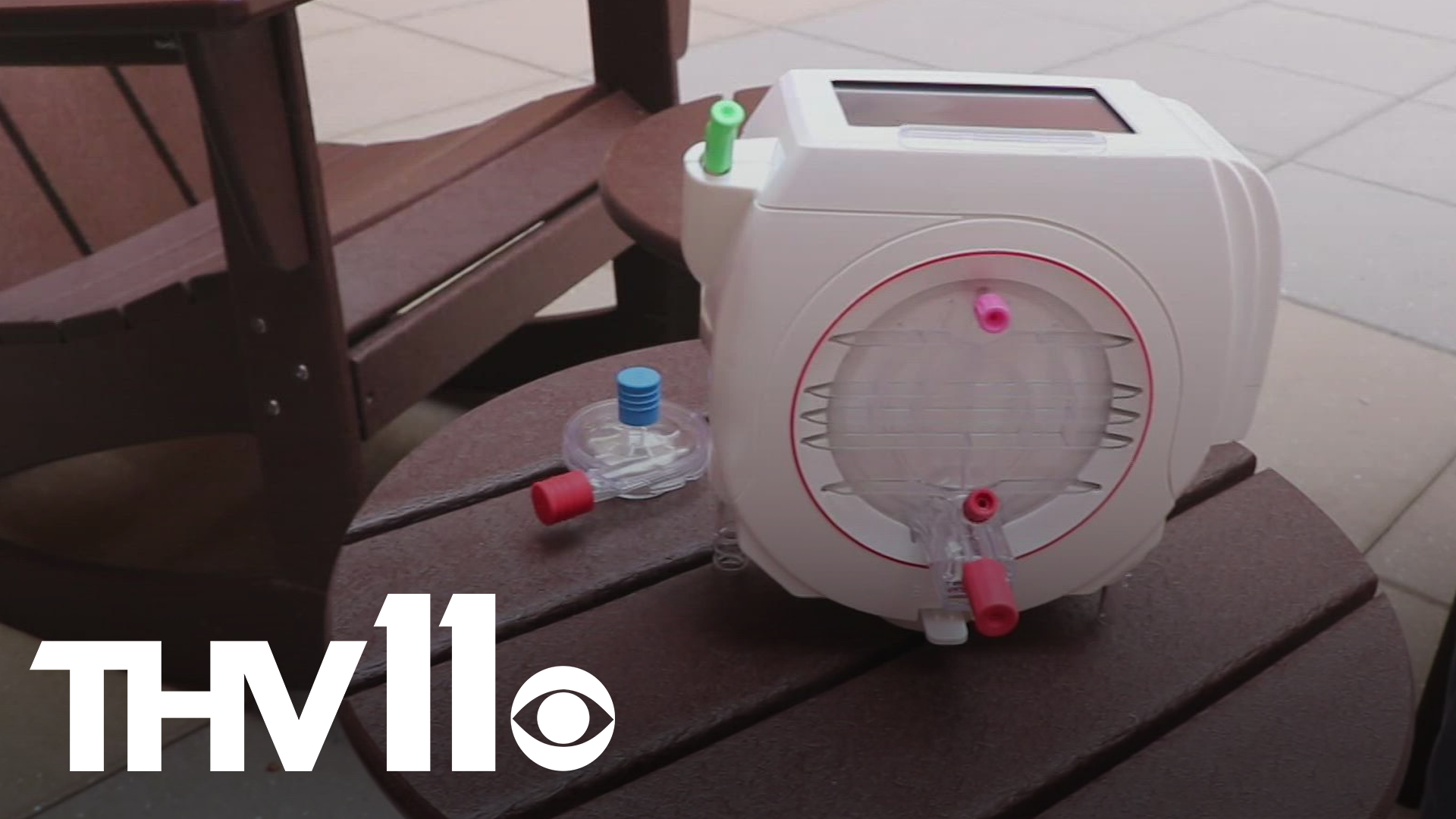LITTLE ROCK, Ark — As our state continues to battle this latest wave in the pandemic, the toolbox doctors have for treating COVID-19 is pretty slim.
We've talked about one of the treatments, monoclonal antibodies, that have had a lot of success in COVID patients recently.
UAMS started using another tool that doctors said is saving some of the most critical COVID patients.
It's called ECMO, which is basically a life-support machine.
UAMS started using this therapy at the end of March 2021.
Although it's not a cure, ECMO Medical Director Dr. Benjamin Davis said it's giving people time.
"There are about a half a dozen patients that I would say wouldn't be alive here in Arkansas if we didn't have this therapy available to us," he said.
A therapy that Davis described as a "last-ditch effort."
"It's sort of the last, most intense life support method that we have," he said.
Known as ECMO, it's a machine that pumps and oxygenates blood outside the body, which gives the heart and lungs time to rest.
Davis said they use it on people with severely damaged lungs.
"ECMO is what we give people when nothing else has worked and all we're really giving these people with ECMO is time," he said.
When the program started, Davis said they thought the pandemic was on its way out, but with the delta variant and critical patients coming in, the plan drastically changed.
"In four and half months we've used it already as much as we thought we were going to use it in the first year," he said.
UAMS has enough machines to put seven patients on at one time, but according to Davis, the machinery isn't where the vacancies lie.
"What really limits us is the number of nurses that we have that are qualified to take care of patients this sick, that are qualified to run the circuit," he said.
It's a job that nurse Carmen Eaken described as extremely time consuming.
"They're in that room for those full 12 hours. They are seeing these patients more than they're seeing their own families right now," she said.
The bond those nurses create with the patients' families is what Eaken said hurts the most.
"Unfortunately, as much as we wish we could and as hard as we fight, we are unable to save everyone," she said.
While it is an important tool that has saved some, Davis believes it's not the most powerful one we have.
"If I could give away all the machines that we have and everybody in Arkansas would get vaccines, we'd save a whole lot more lives that way," he said.
Davis said they've had patients on the machine for six days, all the way to six weeks.
Eaken said UAMS had to purchase more circuits to take care of the number of patients they were receiving.

